Trilateral summit needed for regional cooperation
Updated: 2015-10-26 08:00
(China Daily)
|
||||||||
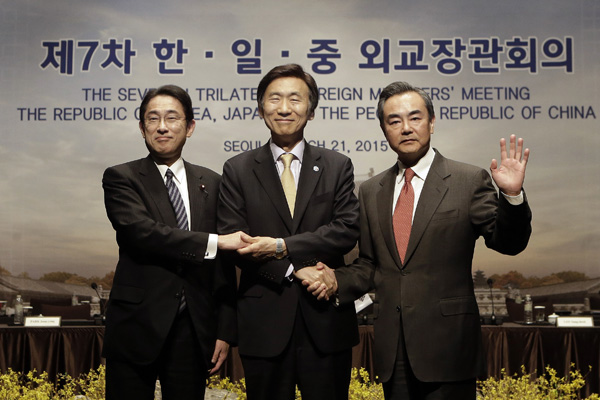 |
|
From right, Chinese Foreign Minister Wang Yi, South Korean Foreign Minister Yun Byung-se and Japanese Foreign Minister Fumio Kishida pose during the 7th trilateral foreign ministers' meeting in Seoul, South Korea, March 21, 2015. [Photo/IC] |
The resumption of trilateral talks between China, Japan and the Republic of Korea marks a significant step forward in East Asia cooperation and is another sign of the thaw in ties between Beijing and Tokyo.
The trilateral summit is scheduled to be held in Seoul on Nov 1, according to a Japanese media report.
The upcoming trilateral talks are a golden opportunity to break the deadlock in trilateral cooperation and promote trilateral interaction, which is essential for the countries' own economic growth and that of the region at large.
Economic issues, trade and culture are expected to be high on the agenda at the meeting, and discussions are likely to touch on the negotiations for widely anticipated trilateral Free-Trade Agreement, which has been dragging its feet after the leader's meeting was stalled three years ago.
In September, China, Japan the ROK held the eighth round of talks in Beijing to exchange views on trade in goods and services, investment and the scope of the FTA. The ninth round of negotiations is scheduled to be held in December.
An early completion of the trilateral FTA negotiations caters to the interests of the three neighbors and will drive the wheel of regional development and prosperity as well.
Obviously, the three nations have everything to gain from continuing to build on the good momentum that has appeared in their relations and from cultivating a good atmosphere for trilateral cooperation so it yields tangible results.
Yet, it is too optimistic to expect reconciliation in a real sense will be realized by a single summit meeting, as the issues that have chilled relations between Japan and its neighbors are still there.
The trilateral summit, which was held five times from 2008 to 2012, was suspended after Sino-Japanese ties were soured by the Japanese government's "purchase" of the Diaoyu Islands in September 2012 and Japanese politicians' repeated whitewashing of Japan's wartime crimes.
For the sake of Japan's own economic development, as well as the larger picture of peace and development in the region, it should shore up a shared belief in controlling and tackling the divisive issues related to history.
It is to be hoped that Japan, in particular, will refrain from making any reckless move at this stage as it would easily squander what has been painstakingly achieved by the three nations in ushering in signs of reconciliation.
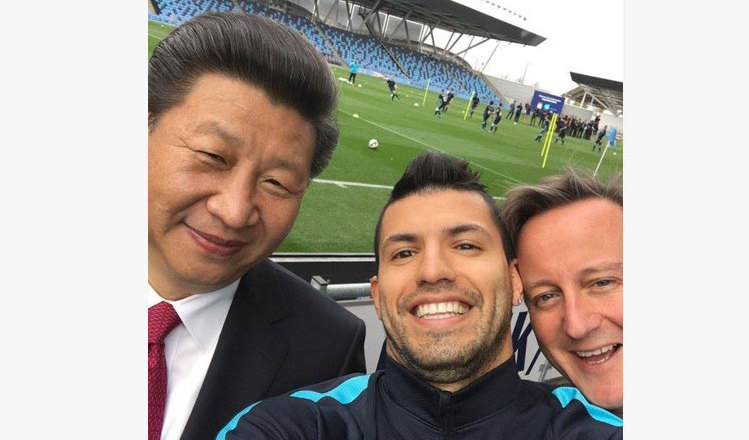
 President Xi visits Man City football club
President Xi visits Man City football club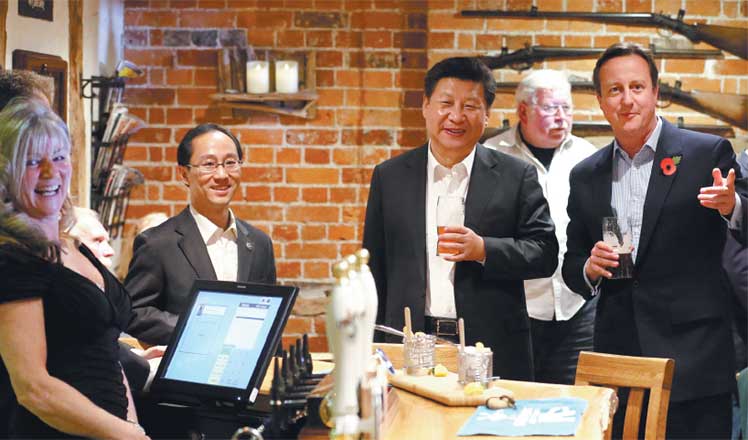
 British PM Cameron treats President Xi to beer, fish and chips in English pub
British PM Cameron treats President Xi to beer, fish and chips in English pub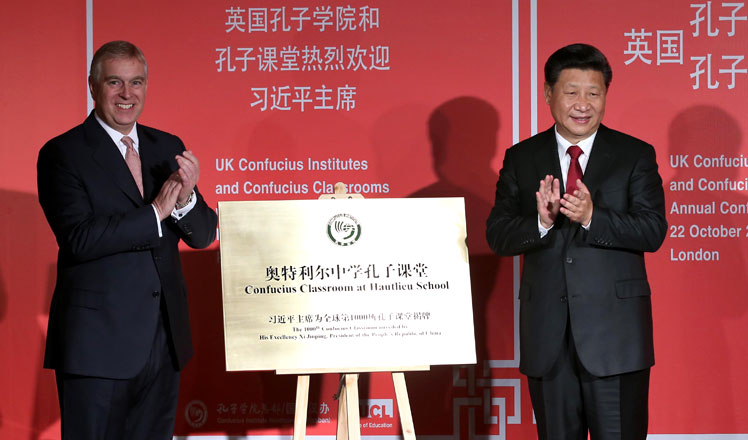
 Xi hails role of Confucius institutes
Xi hails role of Confucius institutes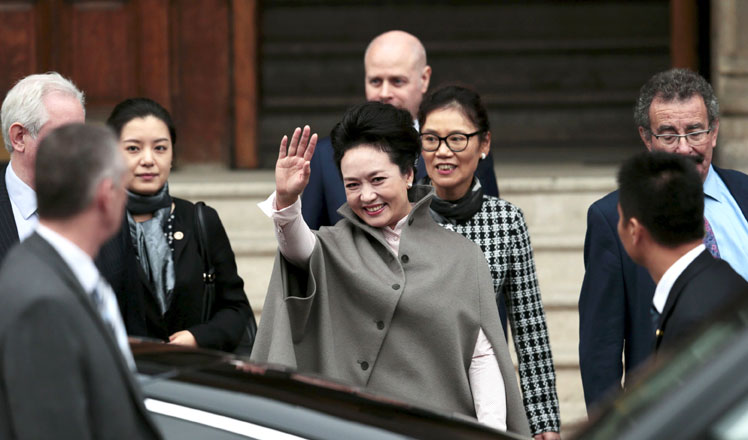
 First Lady visits London's prestigious Royal College of Music
First Lady visits London's prestigious Royal College of Music
 From Bond to Beckham: Highlights of Xi's speech at the Guildhall banquet
From Bond to Beckham: Highlights of Xi's speech at the Guildhall banquet
 Beloved panda was wartime ambassador warming hearts of people
Beloved panda was wartime ambassador warming hearts of people
 China and UK in the eyes of each other's painters
China and UK in the eyes of each other's painters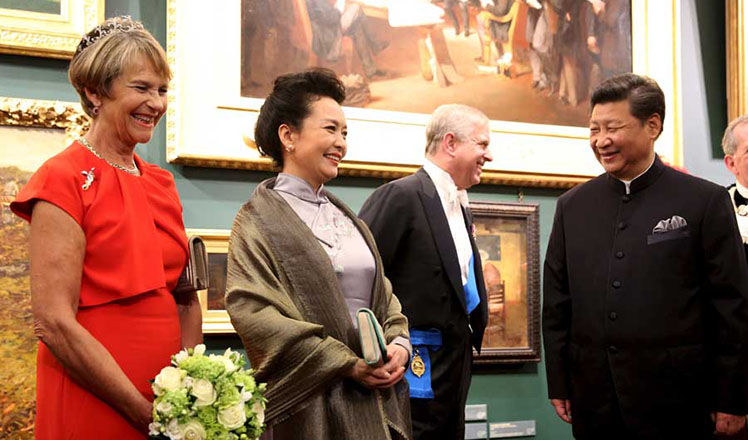
 President Xi, first lady Peng attend Guildhall banquet in London
President Xi, first lady Peng attend Guildhall banquet in London
Most Viewed
Editor's Picks

|

|

|

|

|

|
Today's Top News
Tu first Chinese to win Nobel Prize in Medicine
Huntsman says Sino-US relationship needs common goals
Xi pledges $2 billion to help developing countries
Young people from US look forward to Xi's state visit: Survey
US to accept more refugees than planned
Li calls on State-owned firms to tap more global markets
Apple's iOS App Store suffers first major attack
Japan enacts new security laws to overturn postwar pacifism
US Weekly

|

|








